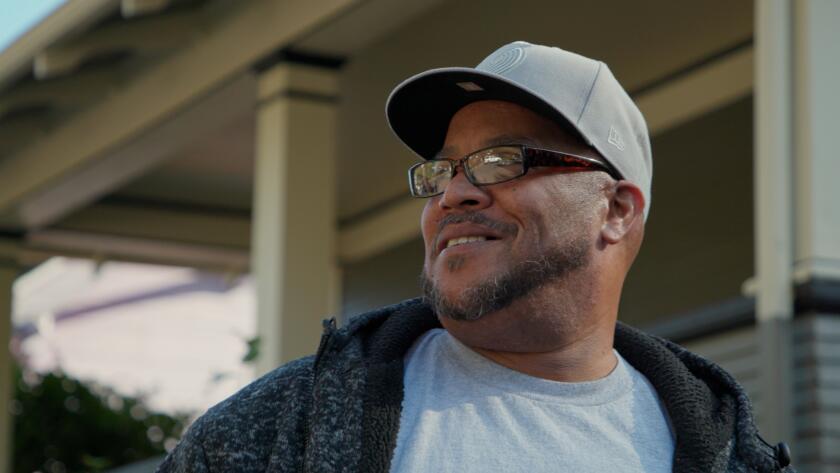Split Jury
Nearly 90 years after Oregon allowed split jury verdicts, one formerly incarcerated man and a law professor seek justice for hundreds of people as Oregon confronts the long-term consequences of this unconstitutional jury system.
- Share via
“Those who cannot remember the past are condemned to repeat it.” — George Santayana
Although we grew up in different countries, we’re both fascinated with history and driven by a love of storytelling. We found a perfect match for our passions in “Split Jury.”
The non-unanimous jury rule in Oregon, which is the subject of our film, is a good example of how decisions made nearly a century ago affect the lives of people right now. That old law — which allowed guilty verdicts in criminal cases to stand even if two jurors out of 12 voted to acquit — offered a window into a criminal justice system with roots in white supremacy, which still shapes our society today.
There has never been a shortage of flaws in the U.S criminal justice system, and while reform efforts have made progress in some states, Oregon’s non-unanimous jury law is a reminder that the past is not so distant.
Our vision for the film was to explain the roots of this law and to bring forward the human emotions and costs that often get lost in debates about criminal justice systems.
Aliza Kaplan, a professor at Lewis & Clark Law School, has been a leading advocate to end the non-unanimous jury verdict system. It was through Aliza that we met Tacuma Jackson and learned about how his life was derailed by this unconstitutional law. Both Aliza and Tacuma placed their full trust in the project, and we were able to follow them for the five months leading up to the Oregon Supreme Court’s ruling in late December 2022.
By showing their passionate struggles to help repair the harm done by this law, we hope “Split Jury” leaves the audience informed about this history and moved by the courageous journey of those who’ve been fighting against this injustice for a very long time.
This film is part of a special Short Docs series in association with the UC Berkeley Graduate School of Journalism.
Although we grew up in different countries, we’re both fascinated with history and driven by a love of storytelling. We found a perfect match for our passions in “Split Jury.”
The non-unanimous jury rule in Oregon, which is the subject of our film, is a good example of how decisions made nearly a century ago affect the lives of people right now. That old law — which allowed guilty verdicts in criminal cases to stand even if two jurors out of 12 voted to acquit — offered a window into a criminal justice system with roots in white supremacy, which still shapes our society today.
There has never been a shortage of flaws in the U.S criminal justice system, and while reform efforts have made progress in some states, Oregon’s non-unanimous jury law is a reminder that the past is not so distant.
Our vision for the film was to explain the roots of this law and to bring forward the human emotions and costs that often get lost in debates about criminal justice systems.
Aliza Kaplan, a professor at Lewis & Clark Law School, has been a leading advocate to end the non-unanimous jury verdict system. It was through Aliza that we met Tacuma Jackson and learned about how his life was derailed by this unconstitutional law. Both Aliza and Tacuma placed their full trust in the project, and we were able to follow them for the five months leading up to the Oregon Supreme Court’s ruling in late December 2022.
By showing their passionate struggles to help repair the harm done by this law, we hope “Split Jury” leaves the audience informed about this history and moved by the courageous journey of those who’ve been fighting against this injustice for a very long time.
This film is part of a special Short Docs series in association with the UC Berkeley Graduate School of Journalism.
